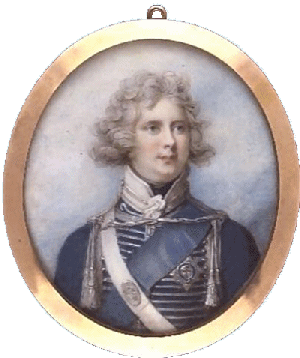
At this time two men as diverse as the age they lived in dominated society. One was the Prince of Wales, the future King George IV - the Prince Regent who lent his name to the era - the product of centuries old royal bloodlines, and the other Beau Brummell, the grandson of a servant and the son of a self-made man. Money and genius became the new equalizers and Brummell the archetype for the cult of the celebrity; his power came from being The Beau rather than from his birth or any specific talents he was endowed with. His influence waned and other personages took his place, yet his fame lived on as the first and greatest of modern celebrities.
